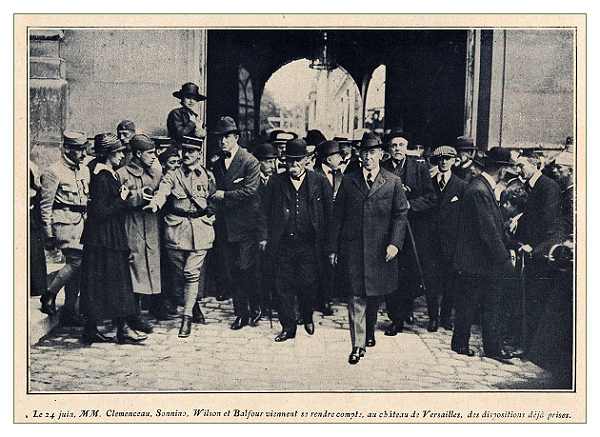In June of 1919, the victorious powers were in Paris deliberating over the best way to carve up Europe. With
each national delegation came a coterie of financial advisors: Paul Warburg negotiating for the Americans and
Max Warburg defending the interests of the Germans. Woodrow Wilson
found his hour amongst this milieu of dignitaries.
Wilson forbade copies of the Treaty of Versailles being given to the Senate, Congress or any common
American. He did not discuss the deals he made on behalf of the American people with their representatives.
While British, French and German delegates regularly informed their governments and people of the terms of
this “peace,” the Americans were conspicuously kept in the dark.
But not every American. A few select personages in New York were kept informed about the terms of the treaty.
Eventually Senator Borah of Idaho learned the source of these leaked government documents. Mr. Jacob Schiff,
Mr. J. P. Morgan, Mr. Paul Warburg, Mr. Thomas Lamont, Mr. Henry P. Davison and Mr. Frank A. Vanderlip were
subpoenaed to testify before the Committee on Foreign Relations of the United States Senate.
[1]
The Witnesses:
Five years before Paul Warburg had been appointed to the Federal Reserve Board and J.P. Morgan (the elder)
was a driving force behind the Bank's creation. Warburg had designed the Fed system: its aims were the
centralization of banking control and a bottomless source of credit for the US Congress. Jacob Schiff was
also in the business of lending to governments; he was partner in Kuhn Loeb and Company and related to Warburg
by marriage. All three had ties to the older banking houses in Frankfurt and London.

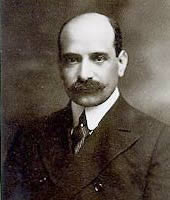
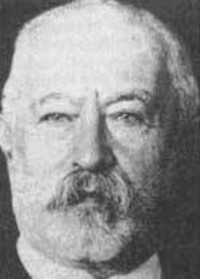
The less famous men were no less interesting:
- Henry P. Davison was a member of the J.P. Morgan & Co., chairman of the American Red Cross and League of
Red Cross Societies. The Red Cross had privileged access to both sides of the Great War under their neutral flag.
- Thomas Lamont was a member of JP Morgan & Co. too, and the US Treasury's advisor to the American
Peace Delegation in Paris (the negotiators of the Versailles Treaty). Both sides of the Federal Reserve partnership
were represented in this man.
- Frank A. Vanderlip was a journalist who became president of the National City Bank (now Citibank).
In between these positions he was Assistant Secretary of the US Treasury. It was under Vanderlip's guidance
that National City became the first American bank to expand overseas. He also created the International American
Corporation: a banking conglomerate which had 17 branches world wide by the end of the First World War. Vanderlip
was also a trustee of the Carnegie Foundation for the Advancement of Teaching.
[2]
Comedy
The hearing was a political battle between senators concerned with American national interests and compromised
senators desperately trying to absolve the witnesses. From the financiers subpoenaed, only J.P. Morgan Jr.,
Davison and Vanderlip bothered to show up.
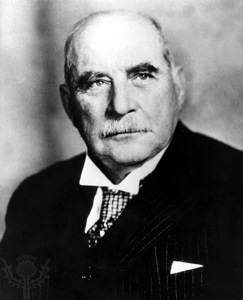
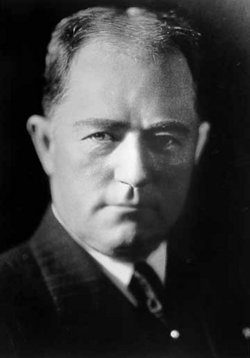
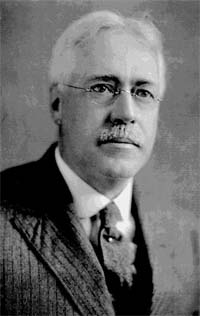
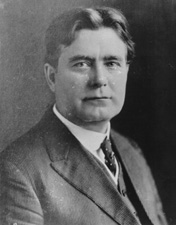 The Senate committee was methodical in the order of witnesses. Firstly, Senator Borah recounted his information
about the existence in New York of copies of the peace treaty with Germany. Specifically, powerful financiers had
secured copies and were using them to their private advantage. It was illegal to have copies of the undisclosed
text: the best information that the Senate had about the treaty was just one Associated Press dispatch.
The Senate committee was methodical in the order of witnesses. Firstly, Senator Borah recounted his information
about the existence in New York of copies of the peace treaty with Germany. Specifically, powerful financiers had
secured copies and were using them to their private advantage. It was illegal to have copies of the undisclosed
text: the best information that the Senate had about the treaty was just one Associated Press dispatch.
Senator Henry Cabot Lodge volunteered to testify that he had seen a copy of the treaty in New York, but it was
shown to him by a friend with absolutely no ties to financial circles. Senator Lodge had never heard of anyone in
finance ever seeing the treaty. He repeated this message several times.
President Wilson wrote to the committee himself to reaffirm that unauthorized possession of the treaty in the
US was against the law. This was interesting, seeing as his closest advisors were the source of the leak.
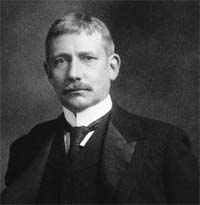 The Secretary of State Frank Lyon Polk asserted that all copies of the treaty legally in the United States were in
his possession — specifically, they were locked in a safe in his office with the diplomatic seals unbroken.
The Secretary of State Frank Lyon Polk asserted that all copies of the treaty legally in the United States were in
his possession — specifically, they were locked in a safe in his office with the diplomatic seals unbroken.
Senator Elihu Root offered testimony next. The thrust of Senator Root's speech was to extol the munificence
of Mr. Davison, and distance himself form this case of corporate espionage. In his effort to clear Davison, Elihu
contradicted both the President's and Secretary Polk's testimony: he claimed copies of the treaty were
very common in the US. According to Senator Root, every American staffer in Paris (there were over 200) was likely
to have leaked the text. It was simply a strange coincidence that he was the only US Senator able to get a copy.
(Elihu's treaty had been supplied by Davison.)
Tragedy
 In his personal testimony Davison did not try to hide the fact that Thomas Lamont had given him the treaty.
Instead, Davison said his power as “Secretary of the Red Cross”
and an “international banker” justified his having a copy. Davison's self-importance was
astounding. He claimed that only his organizations were able to rebuild Europe: firstly through the Red Cross
Organization, then through a consortium of private bankers which would marshal America's resources for a
massive loan. The “League of Nations” was the new world power and Davison part of that
league — so the US government was inconsequential by comparison.
In his personal testimony Davison did not try to hide the fact that Thomas Lamont had given him the treaty.
Instead, Davison said his power as “Secretary of the Red Cross”
and an “international banker” justified his having a copy. Davison's self-importance was
astounding. He claimed that only his organizations were able to rebuild Europe: firstly through the Red Cross
Organization, then through a consortium of private bankers which would marshal America's resources for a
massive loan. The “League of Nations” was the new world power and Davison part of that
league — so the US government was inconsequential by comparison.
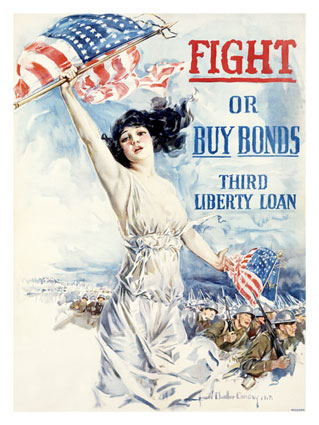 Davison's “consortium of private bankers” were his Kuhn Loeb, J. P. Morgan and National City Bank
connections, as well as their partners in London and Frankfurt. He wanted to use the newly-established banking
monopoly — the Federal Reserve System — to make loans to the European governments. American money
would be lent out, but the US government would be excluded from the process and private bankers would collect
the interest. Mr. Davison thought that the Liberty Bond organization was the perfect organ to implement this plan.
(Liberty bonds provided the bulk of the American financing for the First World War.) The fact that this
organization could be used outside of Washington's control provides insight into its inner workings.
Davison's “consortium of private bankers” were his Kuhn Loeb, J. P. Morgan and National City Bank
connections, as well as their partners in London and Frankfurt. He wanted to use the newly-established banking
monopoly — the Federal Reserve System — to make loans to the European governments. American money
would be lent out, but the US government would be excluded from the process and private bankers would collect
the interest. Mr. Davison thought that the Liberty Bond organization was the perfect organ to implement this plan.
(Liberty bonds provided the bulk of the American financing for the First World War.) The fact that this
organization could be used outside of Washington's control provides insight into its inner workings.
“Europe must be regarded now as a whole”
[3]
The testimonies of J P Morgan and Vanderlip shed more light on how this new loan process would work.
JP Morgan tells us that the US Government bought over seven billion dollars worth of European bonds from his
firm and Kuhn Loeb & Co. in the years leading up to the war. After that, Vanderlip explains why Europe's
debts to the US government must be forgiven. Europe couldn't afford new loans if they had to repay the old ones.
The reader should remember that these bankers make money by selling bonds, not by holding them until they are
repaid. When financiers lobby to forgive debt, they are setting up more profits for themselves while asking the
general public to eat the losses. The same trick is used today through the IMF, World Bank and
their various off-shoots.
Foreshadowing
The way that the new loan was designed would have created an economically unified Europe in one sweep. The
bankers would become the central planners of this empire, not unlike the Bolsheviks in Russia two years before,
or the planners in Brussels today.
Vanderlip disclosed why it was important that the bankers hold the new loan. He explained how European
governments could pay the interest: by giving the bankers first lien on the customs of each country. This
means Europe would pay the bankers with their products. The financiers would determine how the loans were
parceled out to each country, and what industries get what materials. The point is that the bankers would
control the resulting monopolies. This is exactly what international financiers liked about Communism and early
Fascism.
Far from being a champion of “self-determination,” the US president assisted these financiers
behind Congress's and the Senate's back. Wilson chose to ignore the fact that the House and Senate had
to ratify his proposals before they became law or America's commitments. Why? It was obvious that the
United States Congress was not politically disposed to the financiers' aims. In Senator Borah's words,
Woodrow was acting like “President of the World.”
By digging into the treaty leak in New York, the Committee shed light on an attempt to end the sovereignty of
at least fifteen nations: America through political disenfranchisement and those in Europe through economic
dictatorship. The reader can judge for themselves how far this plan came to fruition.
[2] Harvard University's “20th Century Great American Business Leaders.” Accessed June 2007.
The Modern History Project, as quoted from: "The Vanderlip, Van Derlip, Vander Lippe Family in America", by
Charles Edwin Booth, New York, 1914.
[3] Quotation from Mr. Vanderlip's testimony before the Committee.







 The Senate committee was methodical in the order of witnesses. Firstly, Senator Borah recounted his information
about the existence in New York of copies of the peace treaty with Germany. Specifically, powerful financiers had
secured copies and were using them to their private advantage. It was illegal to have copies of the undisclosed
text: the best information that the Senate had about the treaty was just one Associated Press dispatch.
The Senate committee was methodical in the order of witnesses. Firstly, Senator Borah recounted his information
about the existence in New York of copies of the peace treaty with Germany. Specifically, powerful financiers had
secured copies and were using them to their private advantage. It was illegal to have copies of the undisclosed
text: the best information that the Senate had about the treaty was just one Associated Press dispatch. The Secretary of State Frank Lyon Polk asserted that all copies of the treaty legally in the United States were in
his possession — specifically, they were locked in a safe in his office with the diplomatic seals unbroken.
The Secretary of State Frank Lyon Polk asserted that all copies of the treaty legally in the United States were in
his possession — specifically, they were locked in a safe in his office with the diplomatic seals unbroken. Davison's “consortium of private bankers” were his Kuhn Loeb, J. P. Morgan and National City Bank
connections, as well as their partners in London and Frankfurt. He wanted to use the newly-established banking
monopoly — the
Davison's “consortium of private bankers” were his Kuhn Loeb, J. P. Morgan and National City Bank
connections, as well as their partners in London and Frankfurt. He wanted to use the newly-established banking
monopoly — the 